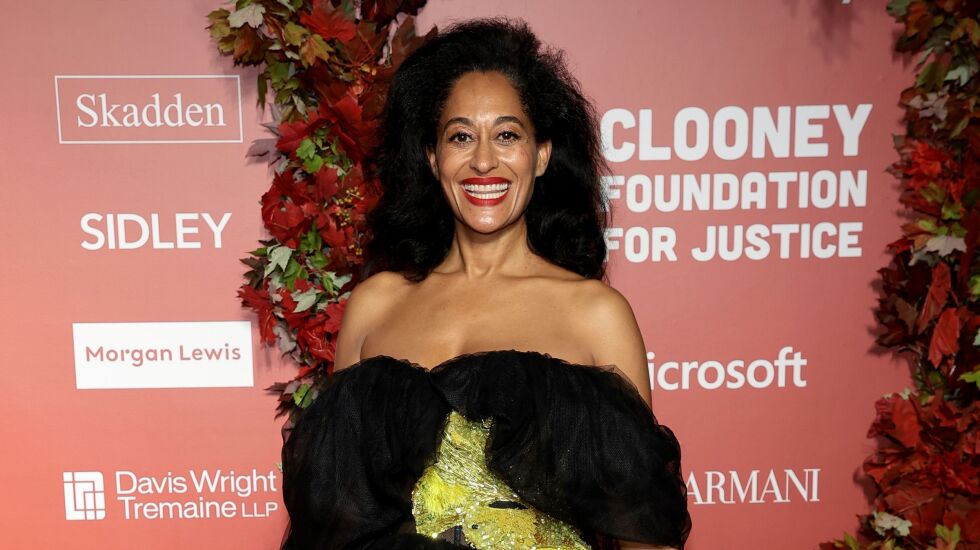
Black hair is complex.
It can be politicized. It can be painful. It can be traumatizing. But Black hair is also beautiful. It’s joyous, summoning memories, traditions, stories and unique journeys.
And that part of the story is what “Hair Tales” (premiering at 8 p.m. Sunday on OWN and streaming weekly on Hulu) spotlights. The six-part series unravels the humanity of Black women through the metaphor of hair and provides context to those experiences, producer and host Tracee Ellis Ross says.
“So often the story of Black women is told through struggle, through strife, through hardship. That is a part of an experience that we have, but it is not the whole story and we don’t get to see ourselves centered in the joy and the celebration, the beauty of who we are,” Ross says. “It is like a love letter to Black women.”
Each episode of “Hair Tales” focuses on one woman’s story and journey with her hair. Ross sits down with actors Issa Rae and Marsai Martin, Rep. Ayanna Pressley, Grammy Award-winning rapper Chika, “Have Mercy” singer Chlöe Bailey and Oprah Winfrey, and explores themes including respectability politics, the business of Black hair, hair as an art form and Black hair in media.
Pressley talks about going from being the Black congresswoman with braids to publicly revealing her struggle with alopecia. Bailey describes how she was turned down for a job because of her locks. Winfrey emotionally tells viewers how she thought she wasn’t pretty enough after being told by her boss to “fix” her hair, and asked if she’d consider plastic surgery when working as a reporter in Baltimore at 21.
“We all have a hair tale. We have a hair story that defined us, that helped us to see what we didn’t want to be, what we did want to be, or that changed our relationship to our hair and our identity,” Ross says. “Usually, that hair story was the moment we were confronted by the world’s idea of us versus our own understanding of ourselves and those moments can be very pivotal.”
Ross didn’t leave these conversations learning anything new about Black hair, mostly because Black women have always known and understood its cultural significance: cutting it all off in a frenzy of frustration, sitting for hours while your mom braids it and pops you on the head with the comb for fidgeting too much; microaggressions; not wanting to go swimming after getting your hair pressed; being passed over for jobs. The list goes on.
Instead, the “Black-ish” star felt seen and comforted by these women’s stories because of their shared experiences. The characters and details may not be the same, but the plot is one Ross has encountered herself.
“I have my version of that story. I also have a scissor story; I also was wounded by the same thing in our culture that made me feel shame,” Ross says. “Those were some of the things I left feeling so comforted by, that I was not alone in my experience that we’re often so siloed about.”
And that’s the feeling “Hair Tales” aims to inspire in Black women: to feel seen and heard. Although Ross says the project is a love letter to Black women by Black women, it’s for everyone.
“I hope that everybody else that watches the show really gains a deeper understanding and respect for Black women, but also sees themselves in what is portrayed in the conversation of beauty.”
Read more at usatoday.com.







